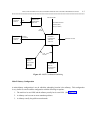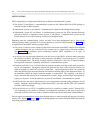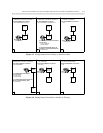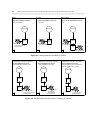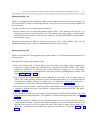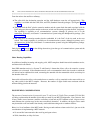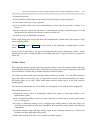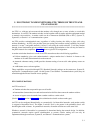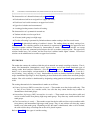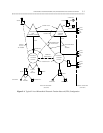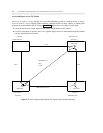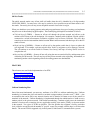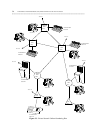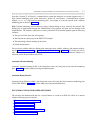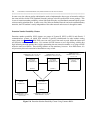5. ELECTRONIC TANDEM NETWORK (ETN) THROUGH THE ETN AND
PNA PACKAGES
_ ______________________________________________________________________________________
_ ______________________________________________________________________________________
_ ______________________________________________________________________________________
An ETN is a wide-area private network that tandems calls through one or more switches to reach their
destinations. In an ETN, the tandem switches are tied together with tie trunks and other equipment needed
to transmit voice and data. A tandem switch can be a DIMENSION 600/2000 (FP8 or FP11), System 75,
System 85, or Generic 1 or 2 communications system.
An ETN provides station/terminal users, regardless of calling location, the ability to place calls using
uniform numbering. An ETN also provides least-cost routing and overflow routing capability for private
network (‘‘on-net’’) and public network (‘‘off-net’’) calls using the switch software. A call may tandem
through several intermediate private switches before reaching the destination or the call may be routed to
the public network for completion. Figure 5-1 shows a typical ETN configuration.
A tandem switch that functions as a node in an ETN network must have the following capabilities:
• Uniform numbering gives each station/terminal a unique number that is identical in format to the
numbers of all other stations/terminals on the network.
• Automatic alternate routing (AAR) provides alternate routing of on-net calls when primary routes are
busy.
• AAR feature-access-code recognition.
These capabilities are provided through ETN (Standard Network) package on the DIMENSION, System 85,
and Generic 2 communications system. On the System 75 and Generic 1 communications system, they are
offered through the Private Network Access package.
ETN CONFIGURATIONS
An ETN consists of:
• Tandem switches that accept and/or pass on call traffic
• Intermachine (intertandem) tie trunks and transmission facilities that connect the tandem switches
• Access or bypass access tie trunks from a tandem switch to a main switch.
(See the Trunking section of chapter 1 for the administrative details on these trunk types.)
An ETN can be configured hierarchically or symmetrically. In hierarchical networks, each tandem switch
is assigned a hierarchical level. The higher a switch’s level is, the greater is the probability that it will
handle higher traffic volumes. In symmetrical networks, all tandem switches are at the same level.
Whether a network is hierarchical or symmetrical is determined during the network design. In addition,
symmetrical networks require special administration to prevent circular routing and can only be
implemented through DIMENSION, System 85, and Generic 2 communications systems.
5-1



